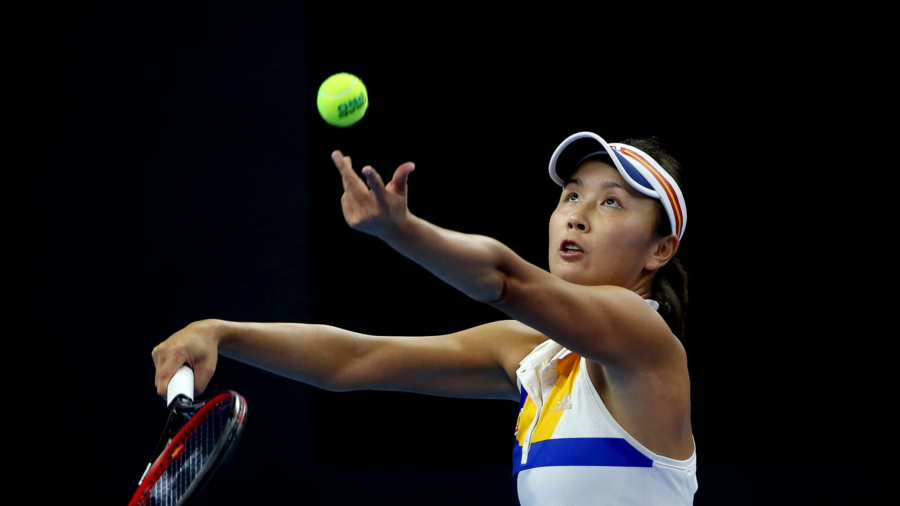The head of the Women’s Tennis Association (WTA) is to suspend future email communication with Chinese tennis star Peng Shuai, as the once-missing player still cannot express herself freely, a spokesman said on Nov. 27.
The sports body had been seeking to hear from the former top-ranked doubles player over the past three weeks.
It came after Peng made accusations of sexual assault against a now-retired top Chinese official in a Nov. 2 post, which swirled around the country’s heavily controlled Internet. The 35-year-old player then vanished from public view for about 20 days, before reappearing on Chinese state media and in a video call with Olympics officials last week.
Steve Simon, the chairman of the WTA, said he is concerned that Peng is still under censorship and coercion from the Chinese regime, the WTA spokesperson said.
“The WTA remains concerned about her ability to communicate freely, openly, and directly,” a statement reads, after the chairman had reached out to Peng via “various communication channels,” including two emails that Peng later replied to.
“It was clear her responses were influenced by others,” according to the statement.
“He [Simon] remains deeply concerned that Peng is not free from censorship or coercion and decided not to re-engage via email until he was satisfied her responses were her own, and not those of her censors,” said the spokesman.
WTA is the first sports body to publicly push back against China, which supplies critical income to others including the International Olympic Committee (IOC) and the NBA. Simon has warned of pulling WTA events out of China unless Peng’s safety can be assured, including the Wuhan Open and the WTA finals in Shenzhen, both scheduled to take place next year.
The chairman also questioned Peng’s previous 30-minute call with the IOC on Nov. 21, during which the three-time Olympian said she was safe and well at home in Beijing.
“It was good to see Peng Shuai in recent videos, but they don’t alleviate or address the WTA’s concern about her well-being and ability to communicate without censorship or coercion,” a WTA spokeswoman said in an e-mail.
The IOC did not release any transcript, nor did it mention Peng’s sexual abuse allegations. Instead, it released a photo of the video call taking place, in which a smiling Peng appeared to show she is “doing fine.”
Human Rights Watch has criticized the IOC for working with China’s propaganda department in arranging the talk with Peng. The IOC has previously failed to intervene in other human rights issues clouding the Beijing Winter Olympics, claiming the committee must be neutral.
“The IOC is entering dangerous waters,” said Amnesty International’s China researcher Alkan Akad on Nov. 22, according to Reuters. “They should be extremely careful not to participate in any whitewash of possible human rights violations.”
The United States, Australia, the European Union, the United Nations, and Britain have sought proof of Peng’s safety and well-being. Last weekend, a group of Chinese feminists staged a rally in New York in support of Peng.
China’s foreign ministry said that “people should stop deliberately and maliciously hyping [Peng’s issue] up.”
The whereabouts of 75-year-old Zhang Gaoli, who had allegedly forced Peng to have sexual relations with him, has not been reported.
The former Chinese vice president stepped down from the powerful seven-member Politburo Standing Committee about three years ago and has not spoken publicly about the incident.
The Associated Press contributed to this report.
From The Epoch Times


